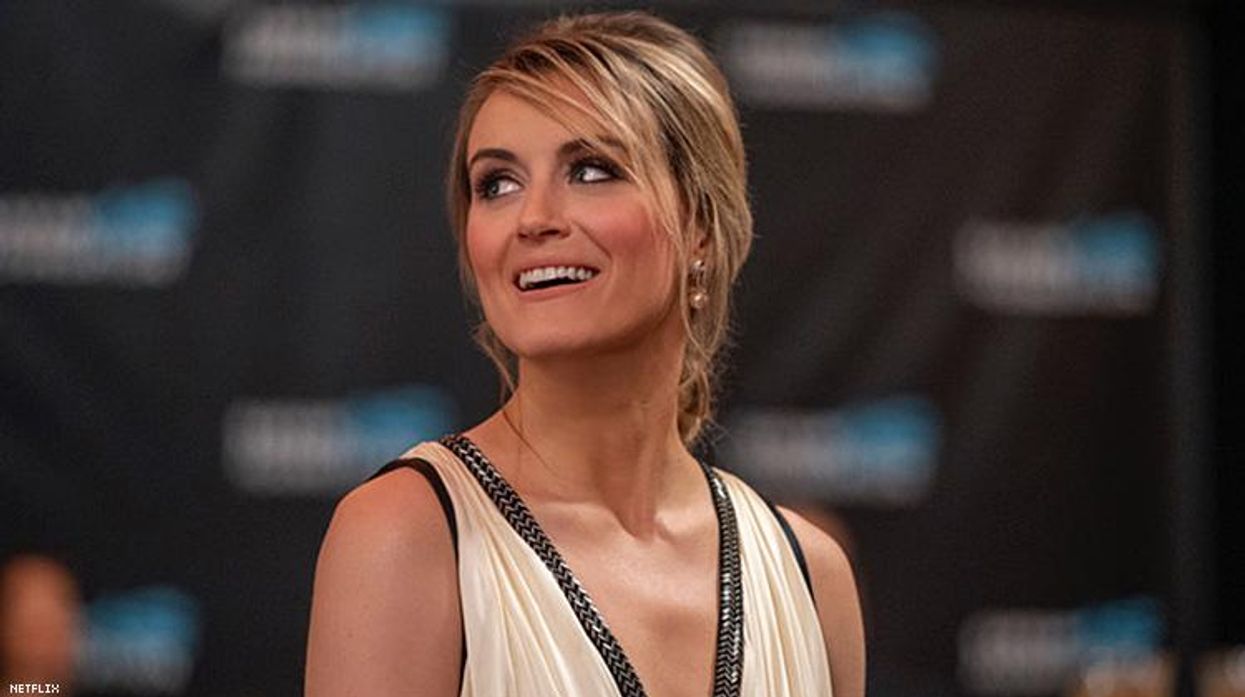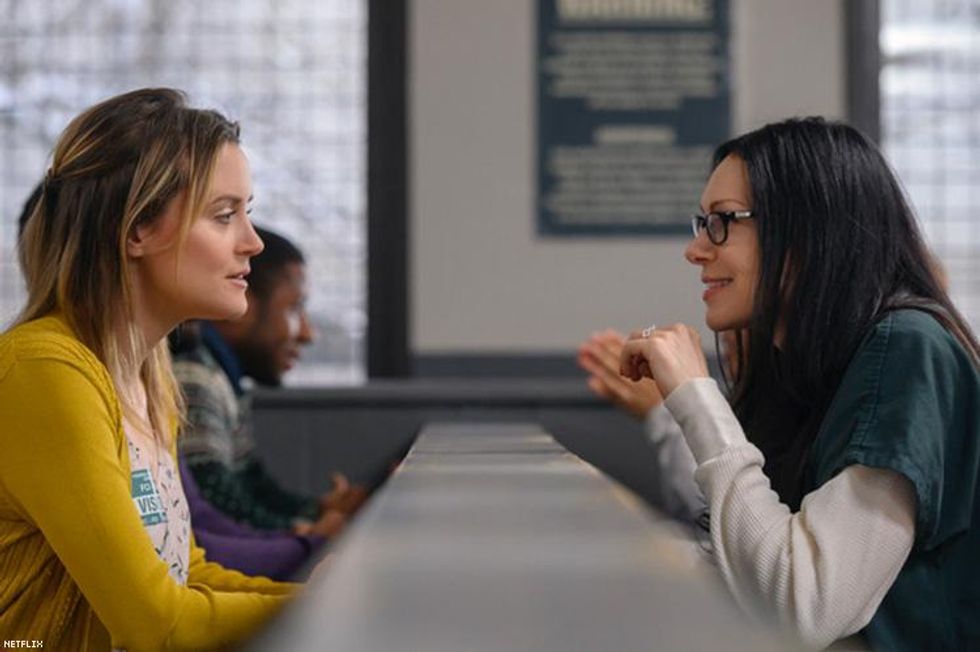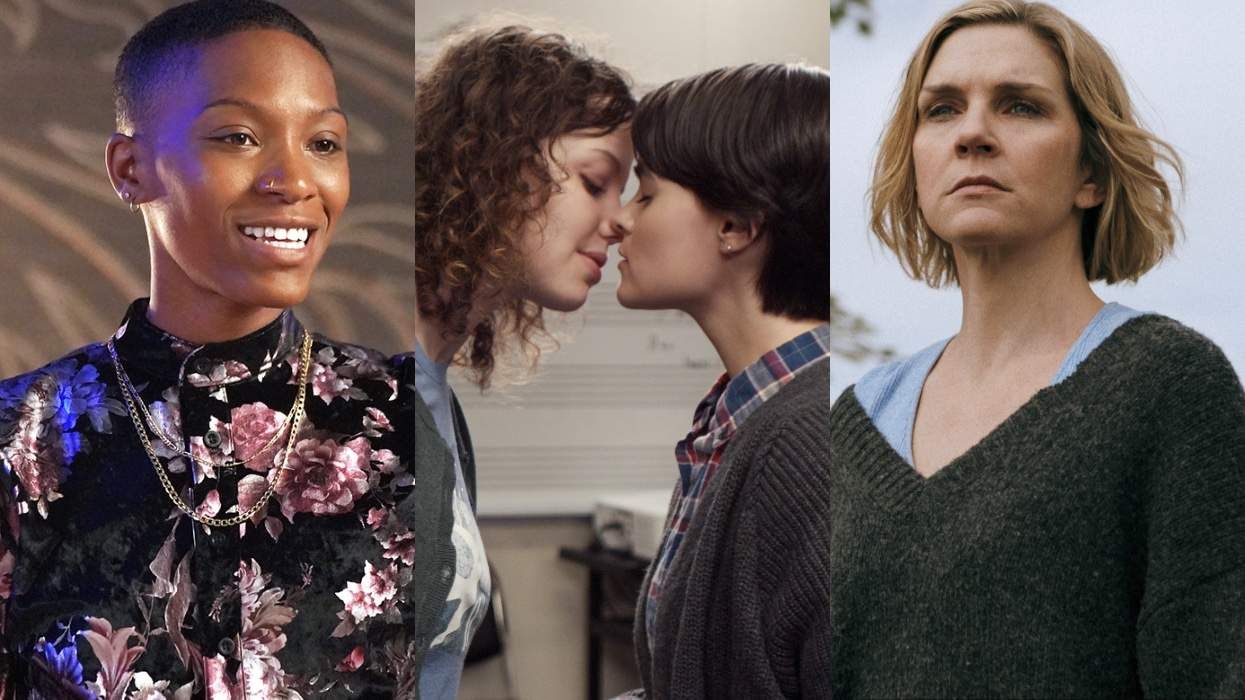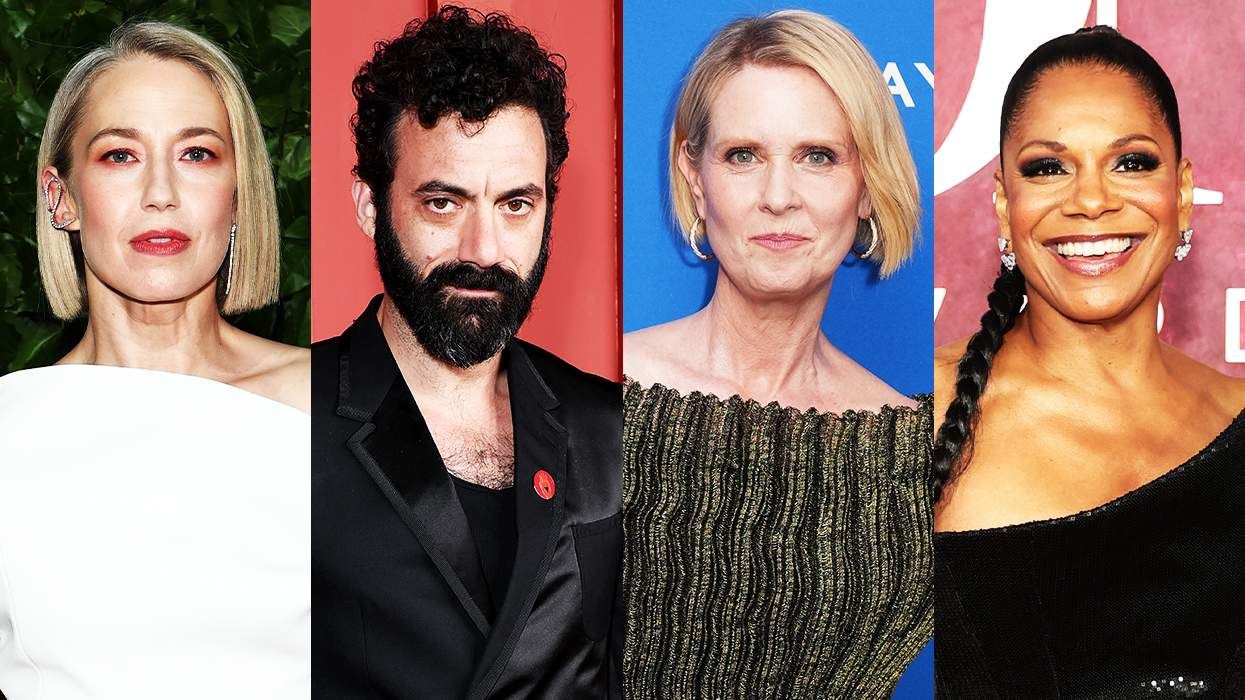Minor Season 7 spoilers ahead.
When Orange Is the New Black premiered on Netflix in 2013, it was clear from the first 30 seconds of the show that it was going to be revolutionary when it visually established its lead character Piper Chapman as bisexual. But then the actual word bisexual went unuttered for 88 episodes. That is until Piper's sexual identity was finally verbally acknowledged in episode 11 of the seventh and final season, which dropped in its entirety on the streaming service last weekend.
In the pilot for OITNB, a shot of a baby being bathed in a kitchen sink cuts to a young girl taking a bath that cuts to two women engaged in what must surely have been foreplay in the shower, as the show's lead character Piper Chapman (Taylor Schilling) says in voice-over, "I've always loved getting clean." That sentiment, of course, would become a metaphor (which circles back around in the final moment of the series) for the years-long moral purge she was about to enter into at Litchfield Correctional Institute.
Then comes the most radical cut of all for TV at the time. The shower scene fades from Piper and the woman she could never quit, Alex (Laura Prepon) into a scene with another tub -- this one occupied by Piper and her fiance, Larry (Jason Biggs), in a tender, playful moment before cutting to Piper navigating her first shower in prison. Before the opening credits rolled, showrunner Jenji Kohan had cemented that her follow-up to Weeds would break barriers, considering she put her bisexual lead character right out there, even if viewers weren't aware at the time that the b word would never actually be said.
In 2013, leading bisexual characters on shows as far-flung as How To Get Away with Murder, The 100, Halt and Catch Fire, and The Bold Type had yet to exist, and OITNB was electric with possibility. And, to be sure, the series continually broke ground amplifying rarely-told stories about women of color, immigrants, and taking on the prison industrial complex.
When the show debuted, for queer women pining for more than the occasional out character on shows like Grey's Anatomy and The Good Wife, OITNB held the promise of filling the void left by The L Word when it ended its six-year run in 2009. OITNB's first season included at least eight queer characters, including transgender actress Laverne Cox playing transgender and Lea DeLaria, a butch lesbian actress. While OITNB never actively adopted the biphobic language that was a hallmark of the L Word, it soon became guilty of bi-erasure.
The show's first season juxtaposes Piper's safe, seemingly settled life with Larry with flashbacks to her sexually-charged life of crime with her drug-running girlfriend, Alex. Eventually, while on the inside and helpless to resist her, Piper chooses Alex. Larry was largely written out of the narrative in subsequent seasons and Piper is then often referred to as a lesbian. She never disputes the categorization.
Taylor Schilling and Laura Prepon
In episode 89, Piper's mom refers to her daughter as bisexual -- in the off-handed manner stereotypical of WASP moms.
"I'm so glad you're dressing up again. I was afraid you were turning into one of those butch lesbians," Piper's mom says to her paroled daughter who needs a dress for a gala.
"Mom," Piper chides.
"Sorry, sorry. Bisexuals," her mom says. "I don't even know how you do that actually -- both genders. It sounds exhausting. I already worry when your father's spending time with a woman. I think I'd go crazy if I had to worry every time he went out with a man too."
For years, each time the show dropped and another season went by in which the word "bisexual" was never said, a spate of opinion pieces castigating the show's bierasure rightly popped up throughout the internet.
Headlines including "Why OITNB Refuses to Say the Word 'Bisexual,'" "Bi-erasure in Orange Is the New Black," and "Why Won't "Orange Is The New Black" Acknowledge That Bisexuals Exist?" excavated the odd refusal of the progressive show.
It wasn't just Piper's sexuality that was glossed over and misidentified for all those years. Other characters drawn to more than one gender including Yael Stone's Lorna Morello, or Kimiko Glenn's Soso never self-identified or were referred to as bisexual either.
It may be too little too late for viewers irked by the show's seven-year refusal to say the word bisexual, but it did finally happen.

















